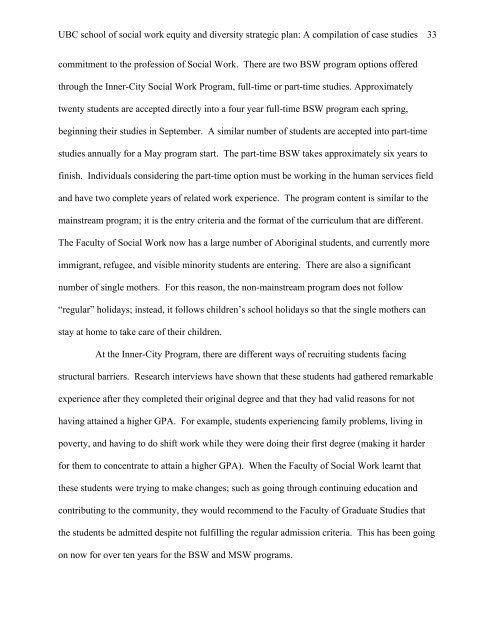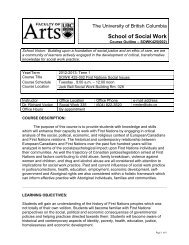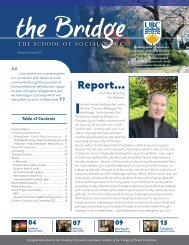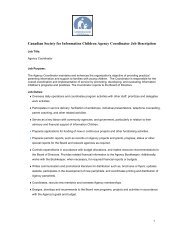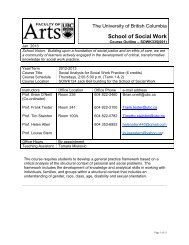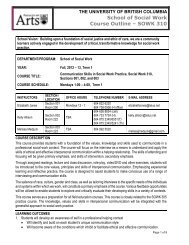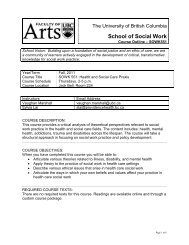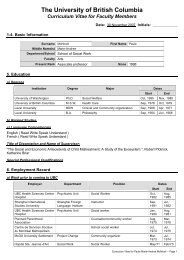Equity Case Studies Report - School of Social Work - University of ...
Equity Case Studies Report - School of Social Work - University of ...
Equity Case Studies Report - School of Social Work - University of ...
Create successful ePaper yourself
Turn your PDF publications into a flip-book with our unique Google optimized e-Paper software.
UBC school <strong>of</strong> social work equity and diversity strategic plan: A compilation <strong>of</strong> case studies 33<br />
commitment to the pr<strong>of</strong>ession <strong>of</strong> <strong>Social</strong> <strong>Work</strong>. There are two BSW program options <strong>of</strong>fered<br />
through the Inner-City <strong>Social</strong> <strong>Work</strong> Program, full-time or part-time studies. Approximately<br />
twenty students are accepted directly into a four year full-time BSW program each spring,<br />
beginning their studies in September. A similar number <strong>of</strong> students are accepted into part-time<br />
studies annually for a May program start. The part-time BSW takes approximately six years to<br />
finish. Individuals considering the part-time option must be working in the human services field<br />
and have two complete years <strong>of</strong> related work experience. The program content is similar to the<br />
mainstream program; it is the entry criteria and the format <strong>of</strong> the curriculum that are different.<br />
The Faculty <strong>of</strong> <strong>Social</strong> <strong>Work</strong> now has a large number <strong>of</strong> Aboriginal students, and currently more<br />
immigrant, refugee, and visible minority students are entering. There are also a significant<br />
number <strong>of</strong> single mothers. For this reason, the non-mainstream program does not follow<br />
“regular” holidays; instead, it follows children’s school holidays so that the single mothers can<br />
stay at home to take care <strong>of</strong> their children.<br />
At the Inner-City Program, there are different ways <strong>of</strong> recruiting students facing<br />
structural barriers. Research interviews have shown that these students had gathered remarkable<br />
experience after they completed their original degree and that they had valid reasons for not<br />
having attained a higher GPA. For example, students experiencing family problems, living in<br />
poverty, and having to do shift work while they were doing their first degree (making it harder<br />
for them to concentrate to attain a higher GPA). When the Faculty <strong>of</strong> <strong>Social</strong> <strong>Work</strong> learnt that<br />
these students were trying to make changes; such as going through continuing education and<br />
contributing to the community, they would recommend to the Faculty <strong>of</strong> Graduate <strong>Studies</strong> that<br />
the students be admitted despite not fulfilling the regular admission criteria. This has been going<br />
on now for over ten years for the BSW and MSW programs.


